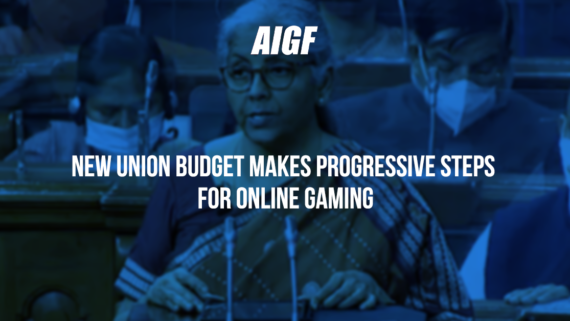The government’s decision to regulate e-sports and impose stricter due diligence requirements on online gaming companies is good news for the sunrise sector because it will likely encourage more entrants, increase investor confidence, and generate new jobs.
Here’s How New Rules Can Give A Big Push To India’s Online Gaming Industry
The government’s decision to regulate e-sports and impose stricter due diligence requirements on online gaming companies is good news for the sunrise sector because it will likely encourage more entrants, increase investor confidence, and generate new jobs.
The Ministry of Electronics and Information Technology (MeitY) has been designated as the primary authority for all matters pertaining to online gaming since the Indian government recently accepted e-sports as a form of mainstream sports. MeitY released draft amendments to the Information Technology (Intermediary Guidelines and Digital Media Ethics Code) Rules, 2021, in the first week of January to regulate the industry, which Invest India—the country’s investment promotion and facilitation agency—identifies as having revenues of $1.2 billion.
The proposals make the online gaming industry legal, lay out the requirements for regulatory compliance, and make governance processes easier to follow. MeitY is seeking feedback until the middle of the month. “While there has already been a steady growth of investor interest within the online gaming industry, the regulatory certainty that the rules for online games will provide will surely provide a fillip in terms of investor sentiment,” says Roland Landers, CEO of industry body All India Gaming Federation.
Some of the key proposals include setting up one or more self-regulatory bodies for the industry, establishing a grievance redressing mechanism, and mandatory KYC for players in accordance with Reserve Bank of India norms. Many gaming businesses are already complying with the rules because they are primarily in line with industry best practices.
According to the experts, the norms will establish a uniform, well-defined regime throughout the ecosystem and increase players’ levels of safety and transparency. According to Arun Prabhu, Partner & Head-Technology Media Telecom, Cyril Amarchand Mangaldas, there are challenges for gaming companies in the form of age-gating and verification of players by self-regulatory bodies, implementing KYC mechanisms at RBI-mandated levels for small-value customer accounts, and satisfying customer grievances and law enforcement requests within an aggressive time frame. “Creating, obtaining and maintaining registrations for games with the self-regulatory bodies, especially if there are numerous applicants for such registrations, will also be a challenge,” he continues.
The industry and other stakeholders believe that the government’s move is a step in the right direction despite the ongoing difficulties.











Comments
Comments are closed.